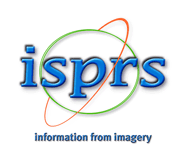ISPRS WG IV/6
Human Behaviour and Spatial Interactions
Our Mission
Activity spaces have become complex, being shaped by diverse human behaviours. Therefore, the sustainability of development has faced various challenges ranging from pollution to equity in accessibility to activity spaces and opportunities. To tackle these challenges, it is vital to develop a better understanding of how people interact with their environments by systematically investigating human behaviour and its uncertainties. Meanwhile, massive human-activity-related spatial datasets together with rich semantic information are being produced from different sources, such as GNSS sensors, surveillance systems, wearable devices, crowd-sourcing tools, and social media platforms. These data sources play an essential role in mining spatio-temporal-semantic information and in inferring spatial knowledge, thus producing benefits for the study of the mechanisms of human behaviour and the underlying spatiotemporal uncertainty. However, challenges remain as to how to effectively harness such big datasets of human activities.
The mission of this WG is to encourage new models, methods, approaches, theories, and insights not only focusing on spatial and temporal information but also on semantic information in interpreting complex human activity patterns towards a better understanding of the human behaviour uncertainties. In addition, the WG focuses on a paradigm combining classic spatial analysis methods, theoretical knowledge on spatial behaviour (e.g. spatial cognition, time geography), and advanced GeoAI technologies to enhance the capabilities of human behaviour-related data processing as well as spatial knowledge inferring. This enables researchers and practitioners to answer key questions like: How do individuals work, live and play? How would human mobilities or human activities be affected if a new policy rolls out? How would human spatial behaviour be affected in case of a crisis or emergency? What facilities should be built, and where should they be allocated to develop a more liveable and human-centric spaces? The WG also provides a niche for studying spatial human behaviour and its uncertainties, the findings of which can be applied to decision-making and policy-making for facilitating sustainable development.
Working Group Officers | ||
Chair | ||
 | Wei Huang Tongji University CHINA
| |
Co-Chair | ||
 | Yingwei Yan National University of Singapore SINGAPORE
| |
Co-Chair | ||
 | Yair Grinberger Hebrew University of Jerusalem ISRAEL
| |
Secretary | ||
 | Hao Li Department of Geography National University of Singapore SINGAPORE
| |
Terms of Reference
- Develop novel models for understanding how human behaviour results in various human activity patterns
- Address challenges and issues regarding human behaviour uncertainties
- Uncover underlying mechanisms of the interactions between human behaviour and living environments
- Develop new spatial analysis technologies for understanding individual and collective behaviour uncertainties within complex systems
- Advance the understanding and assurance of spatial data quality of human-generated spatial content in relation to individual and collective human behaviour
- Review geo-visualization methods of spatio-temporal big data on human behaviour
- Encourage the development of strategies for handling geo-privacy and ethical issues involved in the analysis of and use of individuals’ spatial data (e.g., geotagged social media data)
- Integrate theoretical thinking related to spatial behaviour (spatial thinking, critical thinking, and ethical thinking) for human activity modeling
- Advance the research in understanding and modelling human behaviours towards sustainable decision making and planning
- Promote collaborations with other WGs
WG IV/6






